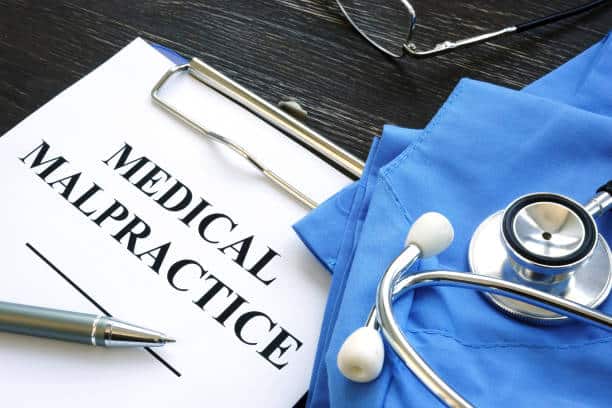When an individual has committed or is charged with a crime, regardless of the state, the first thought that enters their mind is the prospect of jail time. Everyone agrees that incarceration is a scary thought, especially if you have a family, as it’ll mean that you’ll be away from them for years. Additionally, if you’re the breadwinner, you’ll put your family in financial turmoil. Even if you don’t care about your family or loved ones, the idea of jail is still terrifying as you’ll no longer enjoy life the same way a free person can.
Unfortunately, a criminal conviction is more than just fines, probation, incarceration, and other statutory penalties. Being convicted implies that you’ll end up with a criminal record. This record, in return, will lead to collateral consequences, all of which will have a major impact on your life even after you’ve paid your debt to society.
Read on to learn more about collateral consequences and the types most often associated with criminal charges.
What are collateral consequences?
Before knowing the top collateral consequences of criminal charges, it’s important to know the potential collateral consequences of criminal charges. This is because the collateral consequences are often worse than the actual punishment. For example, if you’re convicted and charged with DUI (drinking while under the influence of alcohol), and you avoid being sentenced to jail time, you’ll still end up losing your driver’s license. In this case, the right to drive is worse than any court costs or probation.
With that said, it’s vital to know the collateral consequences before taking any deal or going to trial. To do so, consult a trusted legal professional from offices like Summit Defense Law Firm. A lawyer will help you understand the consequences of your crime and provide advice on the best legal step you need to take, including information on what could happen as a consequence of the criminal charge.
Top collateral consequences of criminal charges
The majority of collateral consequences are social, economic, or cultural. Moreover, collateral consequences that are enacted into law are scattered throughout municipal, state, and federal regulatory and statutory codes. Thus, it may be impossible to name all possible collateral consequences. In fact, there are around 40,000 collateral consequences at both state and federal levels.
Nevertheless, here are the top six collateral consequences of criminal charges in any state:
1. Difficulty finding work
Most, if not all, employers will conduct background checks on applicants. Unfortunately, several surveys reveal that the majority of employers are hesitant to hire ex-convicts. Due to this prejudice, it’s no wonder why more than half of formerly incarcerated individuals end up unemployed after a year or so of being released from prison.
2. Less salary
Although it’s difficult finding a stable job after being convicted of a crime, it’s still possible to find one. However, as of 2019, one-fourth of individuals aged 20 and 29 will have less salary than their colleagues without a criminal record, even if they have the same socioeconomic status. In fact, law-abiding citizens are paid more than USD$20,000 annually than those who served time.
3. Ineligible for financial aid and / or student loans
Drug convictions will result in ineligibility to acquire any federally supported education grants and student loans. Hence, if you’re currently planning or receiving any type of educational financial aid or student loans, and you’re charged with a drug-related crime, ask your attorney whether a finding of guilt will bar you from your right to financial aid.
4. Lose driving privileges
In addition to knowing the essential things to do after being arrested for DUI, keep in mind that driving-related offenses in most states will lead to the suspension or revocation of your driver’s license. This is specifically problematic if your livelihood depends on your driving license; your Commercial Driver’s License (CDL) will also be suspended or revoked.
5. Difficulty obtaining a professional license
If you’re a holder of any kind of professional license, or you’re planning to obtain one in the future, any criminal charges will become an issue. A professional license is required to become a teacher, private security officer, law enforcement officer, nurse, doctor, pharmacist, insurance broker, attorney, and many more.
In case you’re already working in any respective industry, your professional license will either be suspended or revoked the moment your personal record is tainted with criminal charges.
6. Housing
Collateral consequences may render obtaining a home difficult for ex-convicts. Federal law even imposes a mandatory ban on public housing for individuals with a specific type of conviction. Moreover, federal law also allows discretion to any local housing authorities to deny housing to people who served time.
Furthermore, all household members may be evicted, depending on the pending criminal charge or arrest of a single member. Also, families who reside in public housing have to sign an agreement that an ex-convict family member can’t live or visit them in any public housing unit.
In the case of private housing, landlords, similar to employers, will often perform credit and background checks to assess if any prospective tenants have a criminal record. As a result, it’s no wonder why about one-third of individuals released after paying their debt to society will end up living in homeless shelters, which are usually unsafe, rendering their rehabilitation useless.
Conclusion
Unfortunately, the consequences of any criminal conviction stick with you in the form of a criminal record. Once you have a criminal record, you’ll end up facing collateral consequences, which have more impact on your life. You might not be able to find work. When you do, you could get paid less. If you’re a student, you could lose access to financial aid. You could lose licenses and access to housing or even visit your loved ones who use public housing.
To help you avoid any life-changing consequences due to criminal charges, call an experienced legal professional immediately. By doing so, you can fight the charges against you, ensuring your rights aren’t fully stripped away from you.
References
- “Collateral Consequences of Criminal Convictions: Judicial Bench Book”, Source: https://www.ojp.gov/pdffiles1/nij/grants/251583.pdf
- “Prisoners in 2019”, Source: https://www.bjs.gov/content/pub/pdf/p19.pdf
- “New data on formerly incarcerated people’s employment reveal labor market injustices”, Source: prisonpolicy.org/blog/2022/02/08/employment/
- “Conviction, Imprisonment, and Lost Earnings”, Source: https://www.brennancenter.org/sites/default/files/2020-09/EconomicImpactReport_pdf.pdf
- “Collateral Consequences”, Source: https://www.clasp.org/tags/collateral-consequences/




